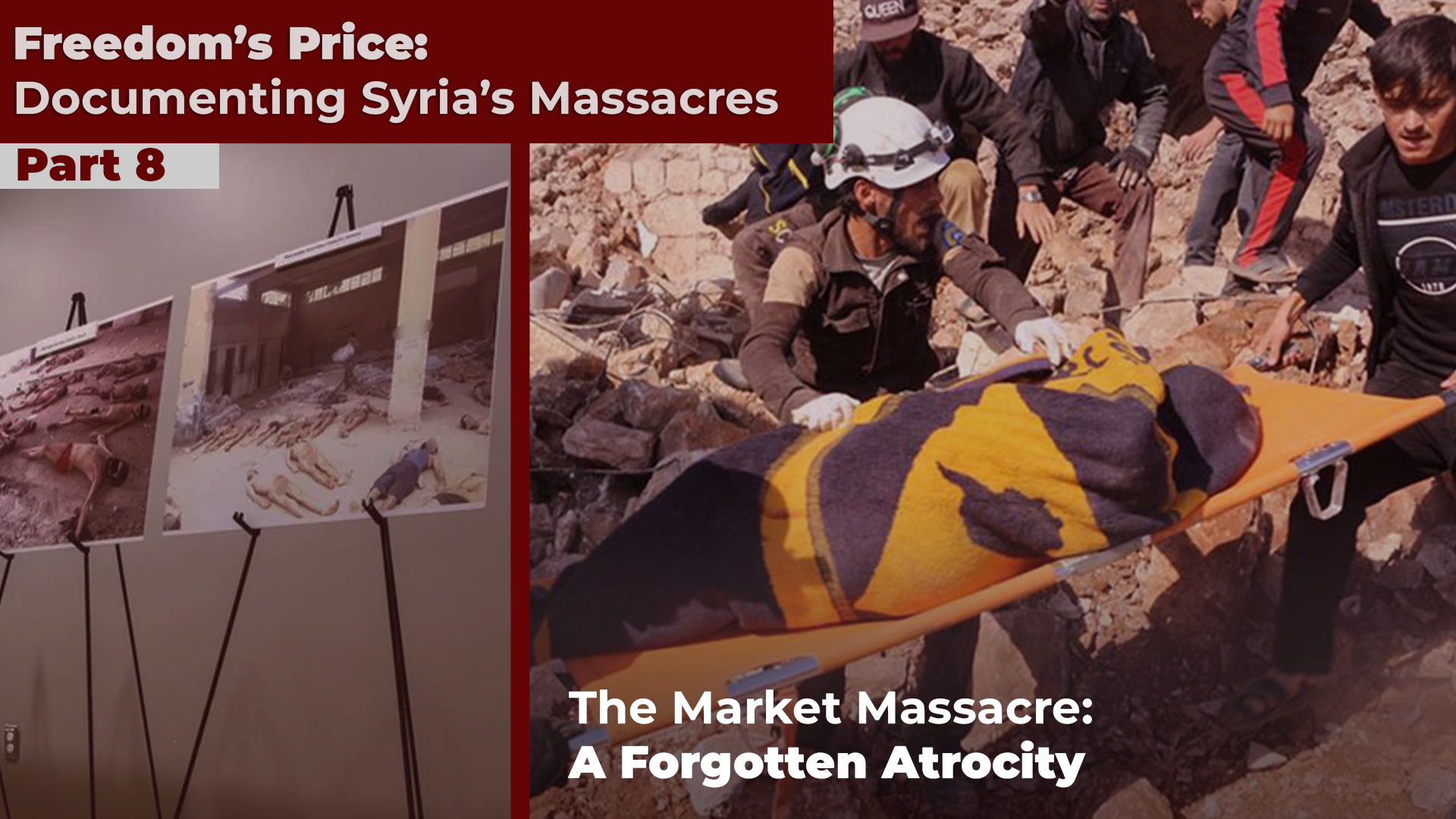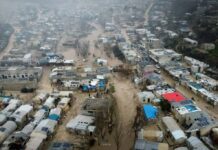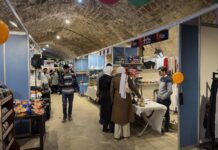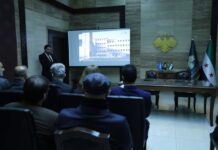The Market Massacre: A Forgotten Atrocity

Freedom’s Price is a series of articles aiming to shed light on the major massacres that have occurred during the ongoing conflict in Syria over the last 13 years. Each article highlights the crimes the Syrian people have endured in the course of their revolution and the high cost in their struggle for freedom and dignity. This installment in the series covers the Market Massacre of Maarat al-Numan, where nearly 50 people were murdered, and almost 100 injured, by Assad’s Russian allies five years ago in the summer of 2019.
________________________________
The summer sun was still climbing in the sky over Maarat al-Numan, casting long shadows across the bustling vegetable market in the city’s center. Vendors called out to customers, offering fresh produce stacked in neat piles, as shoppers haggled over prices. It was a typical morning in the city’s main wholesale market – a place where life had managed to carve out a semblance of normalcy amid the chaos of war. But that fragile peace was shattered in an instant.
Suddenly, the unmistakable roar of jets filled the air, followed by the chilling sound of missiles cutting through the sky. “In the blink of an eye, we heard one word on the radio, ‘warplane over Maarat,’ and then immediately we heard the sound of the missiles,” recalls Abdul Rahman Al-Mahmoud, a shop owner who survived the attack. The ground shook violently as the first explosion ripped through the packed market, sending a plume of dust and debris into the air. “Suddenly, the entire atmosphere was filled with dust… The pressure from the missiles threw me to the back of my shop,” Al-Mahmoud remembers, his voice still heavy with the shock of that day.

Panic and confusion swept through the market as people scrambled for cover, their cries of fear drowned out by the deafening noise. Within moments, what had been a lively scene of daily commerce was transformed into a landscape of devastation – bloodied bodies lying amidst the wreckage, screams of pain and terror filling the air.
“It feels like Judgment Day has arrived right in front of you,” Al-Mahmoud says, describing the surreal horror of the scene that unfolded before his eyes. This was no ordinary attack – it was a deliberate act of terror, executed with chilling precision by Russian jets on a day that should have been like any other.
The Human Toll
Survivor Al-Mahmoud told L24 that when he managed to get up and step outside of his shop following the initial attack, the scene before him was one of unimaginable horror. Two of his neighbors lay in front of their shops, screaming in pain. “You don’t know what to do – whether to cry from the scenes you’re witnessing of your dearest friends or to try and help them, but you can’t because your legs can’t carry you anymore,” he recounts. “In just a few minutes, you feel like your mind has been blown from the immense pain you’re seeing in front of your eyes, and there’s nothing you can do.”
This harrowing account underscores the profound human cost of the massacre. It wasn’t just buildings and businesses that were destroyed that day; it was lives, families, and communities, torn apart in an instant. For the survivors, the trauma of that day lingers an open wound that has yet to heal.
Calculated Crimes
The attack was a calculated act of terror. Russian jets, deliberately targeting civilians, struck the market at its busiest time of day. Obada Zakra, a volunteer with the Syrian Civil Defense who led a search and rescue team that day, told L24 the scene that day was one of utter devastation. “The Maarat al-Numan massacre committed by Russian forces on July 22, 2019, by deliberately bombing the city’s market, is one of the largest and unforgettable massacres,” Zakra states.
The cruelty of the attack was compounded by the fact that it was a “double tap” attack. After the first round of missiles struck the market, rescue teams from the Syrian Civil Defense, also known as the White Helmets, rushed to the scene to help those trapped under the rubble and treat the wounded. But as they carried out their life-saving work, a second wave of missiles hit, this time targeting the rescuers themselves. “The mission was like a miracle,” Zakra recalls, noting that among the victims was a fellow volunteer, Amir Al-Bunni, who was killed during the rescue operation.

A Deafening Silence
In the aftermath of the Maarat al-Numan massacre, the international community expressed concern but took no meaningful action. For the people of Syria, this lack of response has become a familiar pattern. Despite the documented evidence of countless war crimes, including the use of chemical weapons and the deliberate targeting of hospitals, schools, and civilian infrastructure, there has been little progress toward holding the Assad regime and its allies accountable.
Zakra is deeply frustrated by the international community’s inaction. “The international will to achieve justice…is completely absent,” he laments. His words reflect the disillusionment felt by so many Syrians who have seen their suffering met with indifference by the world. The Maarat al-Numan massacre is just one of many atrocities that have been met with little more than empty rhetoric and token gestures of concern.
This lack of accountability has not only prolonged the conflict in Syria but has also emboldened other authoritarian regimes to commit similar acts of violence with impunity. The situations in Ukraine and Gaza, where Russia and Israel have systemically targeted civilians, are a stark reminder of the consequences of failing to act decisively in the face of war crimes.
Forgotten Yet Unforgettable
While there have been some efforts to document the crimes committed during the Syrian conflict, justice remains elusive for the victims of the Maarat al-Numan massacre. Various human rights organizations have compiled extensive evidence of war crimes, and there have been some attempts to bring cases before international courts. However, these efforts have been hampered by geopolitical realities and the lack of a unified international response.
Survivors of the massacre, like many other victims of the Syrian conflict, continue to call for justice. “Perhaps the wounds in the bodies have healed after five years,” says Zakra, “but the most dangerous wounds are the wounds in the souls, what the survivors and victims need is justice… Justice is the only thing that can heal their souls.” For so many, the psychological wounds inflicted by the massacre are just as severe as the physical injuries. The sense of abandonment by the international community only deepens their trauma, as they struggle to understand why the world has allowed their suffering to go unpunished.

In recent years, there have been some promising developments, such as the use of universal jurisdiction to prosecute war criminals in foreign courts. However, much more needs to be done to ensure that those responsible for the Maarat al-Numan massacre and other atrocities are held accountable. This includes increased international pressure on Russia and the Assad regime, as well as greater support for efforts to document and prosecute war crimes.
“I will never forget that day,” Zakra vows, “a day engraved in my memory and conscience, as if we were inside death, only remains, screams, groans and pain, blood mixed with people’s livelihood.” Yet while unforgettable for those who were inflicted with its horrors it has been forgotten by much of the world.








